Immunomodulation
How to submit an article:
- Registered users can submit any published journal article that has a unique DOI (Digital Object Identifier) name or link to Research Hub.
- For example, you can paste the full DOI link:
https://doi.org/10.1109/5.771073or just the DOI name:10.1109/5.771073into the field above and click submit. - The person who is first to submit a valid article to Research Hub will forever be credited for it, and every article submission earns you +6 Research Points.
Related Topics
Published research studies are articles that present the findings of original research that has undergone a peer-review process and has been made publicly available in scholarly journals, books or other media.

Vitamin D in Depression: A Potential Bioactive Agent to Reduce Suicide and Suicide Attempt Risk
2023 Apr 04 Nutrients Somoza-Moncada MM, Turrubiates-Hernández FJ, Muñoz-Valle JF, Gutiérrez-Brito JA, Díaz-Pérez SA, Aguayo-Arelis A, et al.
Review Article Suicide DepressionVitamin D deficiency could accelerate depressive symptoms and suicide risks, and vitamin D supplementation may mitigate these effects.

Critical review on the immunomodulatory activities of carrot’s β-carotene and other bioactive compounds
2022 Dec Journal of Functional Foods Anjani G, Ayustaningwarno F, Eviana R
Review Article Carrot Oxidative Stress Carotene Anti-Inflammatory ImmunomodulationCarrot's bioactive compounds can regulate immune response, reduce oxidative stress, and prevent damaging oxidative destruction, making it a potential preventive tool for various diseases.
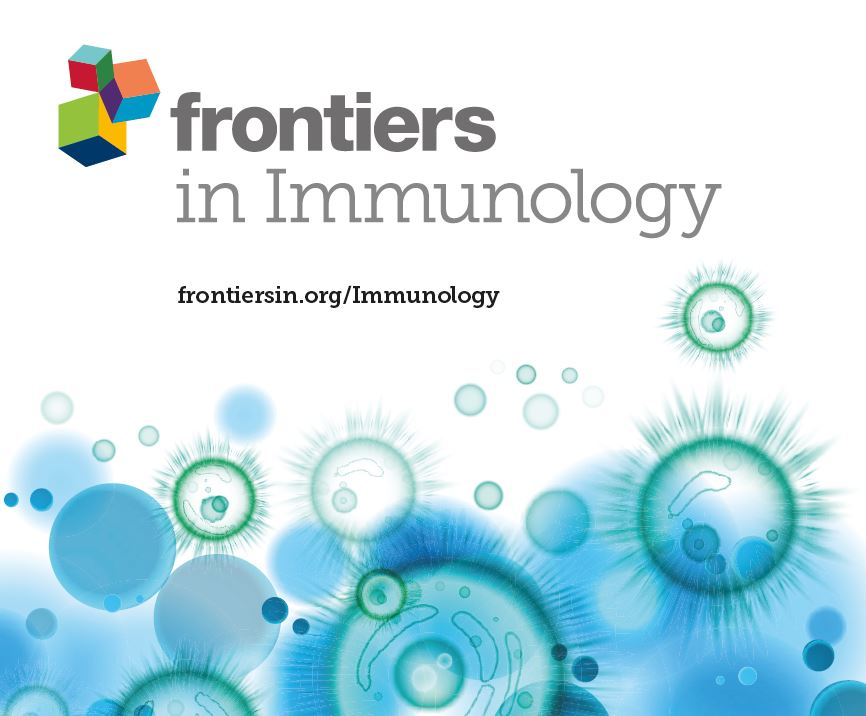
Characterization of immunomodulatory responses induced by manuka honey
2022 Nov 02 Frontiers in Immunology Masad RJ, Nasser RA, Bashir G, Mohamed YA, Al-Sbiei A, Al-Saafeen BH, et al.
Network Pharmacology Animal Study Immunomodulation HoneyManuka honey exhibits a dual role in immune modulation, triggering a pro-inflammatory response by elevating cytokine expression and neutrophil recruitment via TLR signaling, while also influencing the phenotypic and functional maturation of macrophages.
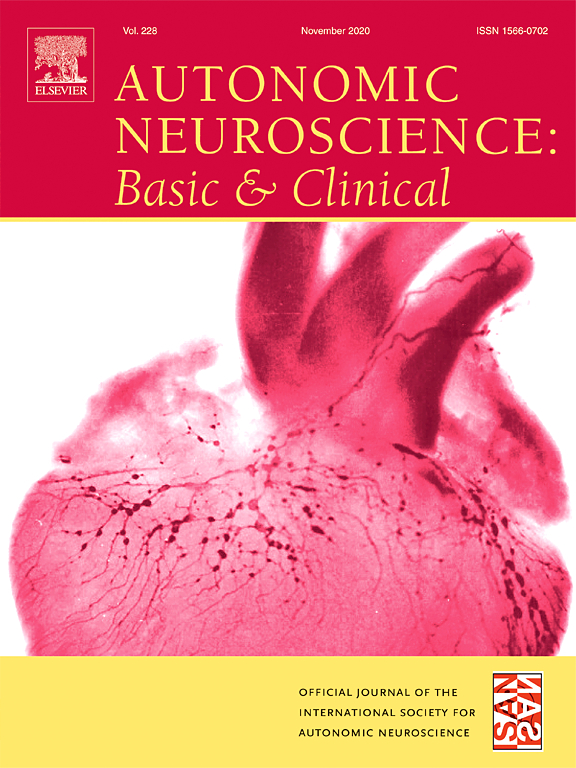
Acupuncture modulates immunity in sepsis: Toward a science-based protocol
2021 May 1 Autonomic Neuroscience: Basic and Clinical Pan WX, Fan AY, Chen S, Alemi SF.
Review Article Experimental Study Sepsis Common Cold, Flu & Viral Infections ImmunityAcupuncture, via nerve stimulation, can be a promising treatment strategy for controlling inflammation and improving organ function during sepsis by activating immune reflexes.

Immunomodulation of Chinese Herbal Medicines on NK cell populations for cancer therapy: A systematic review
2021 Mar Journal of Ethnopharmacology Liu H, Wang ZY, Zhou YC, Song W, Ali U, Sze DMY
This comprehensive review demonstrated NK cells activity was positively associated with quality of life but not survival benefit of cancer patients. Thus exploring the roles of NK cells in adjuvant therapy against cancer is confirmed to be beneficial to explore the underlying relationship between immunomodulation and quality of life.
Systematic Review CancerResearch insights are moderated by the Research Hub team and offer an at-a-glance overview of interesting research findings.

2023 Nutrients
Vitamin D deficiency could accelerate depressive symptoms and suicide risks, and vitamin D supplementation may mitigate these effects.
Review Article Depression Suicide
Vitamin D in Depression: A Potential Bioactive Agent to Reduce Suicide and Suicide Attempt Risk
Somoza-Moncada MM, Turrubiates-Hernández FJ, Muñoz-Valle JF, Gutiérrez-Brito JA, Díaz-Pérez SA, Aguayo-Arelis A, et al.

2022 Journal of Functional Foods
Carrot's bioactive compounds can regulate immune response, reduce oxidative stress, and prevent damaging oxidative destruction, making it a potential preventive tool for various diseases.
Review Article Anti-Inflammatory Carotene Carrot Oxidative Stress
Critical review on the immunomodulatory activities of carrot’s β-carotene and other bioactive compounds
Anjani G, Ayustaningwarno F, Eviana R

2022 Frontiers in Immunology
Manuka honey exhibits a dual role in immune modulation, triggering a pro-inflammatory response by elevating cytokine expression and neutrophil recruitment via TLR signaling, while also influencing the phenotypic and functional maturation of macrophages.
Network Pharmacology Honey
Characterization of immunomodulatory responses induced by manuka honey
Masad RJ, Nasser RA, Bashir G, Mohamed YA, Al-Sbiei A, Al-Saafeen BH, et al.

2021 Autonomic Neuroscience: Basic and Clinical
Acupuncture, via nerve stimulation, can be a promising treatment strategy for controlling inflammation and improving organ function during sepsis by activating immune reflexes.
Review Article Common Cold, Flu & Viral Infections Immunity Sepsis
Acupuncture modulates immunity in sepsis: Toward a science-based protocol
Pan WX, Fan AY, Chen S, Alemi SF.

2021 Molecules
Bee honey and propolis could have potential beneficial effects as supporting treatments for COVID-19, enhancing immunity and inhibiting viral activity.
Review Article Anti-Inflammatory Antiviral COVID-19 Honey
Propolis, Bee Honey, and Their Components Protect against Coronavirus Disease 2019 (COVID-19): A Review of In Silico, In Vitro, and Clinical Studies
Ali AM, Kunugi H
Review Articles
Review articles summarise and critically evaluate the current state of research on a specific topic or field by synthesising multiple primary research studies.

Vitamin D in Depression: A Potential Bioactive Agent to Reduce Suicide and Suicide Attempt Risk
2023 Apr 04 Nutrients Somoza-Moncada MM, Turrubiates-Hernández FJ, Muñoz-Valle JF, Gutiérrez-Brito JA, Díaz-Pérez SA, Aguayo-Arelis A, et al.
Review Article Suicide DepressionVitamin D deficiency could accelerate depressive symptoms and suicide risks, and vitamin D supplementation may mitigate these effects.

Critical review on the immunomodulatory activities of carrot’s β-carotene and other bioactive compounds
2022 Dec Journal of Functional Foods Anjani G, Ayustaningwarno F, Eviana R
Review Article Carrot Oxidative Stress Carotene Anti-Inflammatory ImmunomodulationCarrot's bioactive compounds can regulate immune response, reduce oxidative stress, and prevent damaging oxidative destruction, making it a potential preventive tool for various diseases.

Acupuncture modulates immunity in sepsis: Toward a science-based protocol
2021 May 1 Autonomic Neuroscience: Basic and Clinical Pan WX, Fan AY, Chen S, Alemi SF.
Review Article Experimental Study Sepsis Common Cold, Flu & Viral Infections ImmunityAcupuncture, via nerve stimulation, can be a promising treatment strategy for controlling inflammation and improving organ function during sepsis by activating immune reflexes.

Immunomodulation of Chinese Herbal Medicines on NK cell populations for cancer therapy: A systematic review
2021 Mar Journal of Ethnopharmacology Liu H, Wang ZY, Zhou YC, Song W, Ali U, Sze DMY
This comprehensive review demonstrated NK cells activity was positively associated with quality of life but not survival benefit of cancer patients. Thus exploring the roles of NK cells in adjuvant therapy against cancer is confirmed to be beneficial to explore the underlying relationship between immunomodulation and quality of life.
Systematic Review Cancer
Propolis, Bee Honey, and Their Components Protect against Coronavirus Disease 2019 (COVID-19): A Review of In Silico, In Vitro, and Clinical Studies
2021 Feb 25 Molecules Ali AM, Kunugi H
Review Article Anti-Inflammatory Honey Antiviral Immunomodulation COVID-19Bee honey and propolis could have potential beneficial effects as supporting treatments for COVID-19, enhancing immunity and inhibiting viral activity.
Clinical Trials
Clinical trials are research studies that involve people and are conducted to evaluate the safety and efficacy of new treatments or interventions, such as drugs, medical devices, or behavioural therapies.
Study Protocols
Published study protocols are detailed plans that outline the objectives, methodology, statistical analyses, and organisation of a research study that have been made publicly available for others to review and use as a reference.
Presentation Slides

Review Article
Vitamin D deficiency could accelerate depressive symptoms and suicide risks, and vitamin D supplementation may mitigate these effects.
Somoza-Moncada MM, Turrubiates-Hernández FJ, Muñoz-Valle JF, Gutiérrez-Brito JA, Díaz-Pérez SA, Aguayo-Arelis A, Hernández-Bello J

Review Article
Carrot's bioactive compounds can regulate immune response, reduce oxidative stress, and prevent damaging oxidative destruction, making it a potential preventive tool for various diseases.
Anjani G, Ayustaningwarno F, Eviana R

Network Pharmacology
Manuka honey exhibits a dual role in immune modulation, triggering a pro-inflammatory response by elevating cytokine expression and neutrophil recruitment via TLR signaling, while also influencing the phenotypic and functional maturation of macrophages.
Masad RJ, Nasser RA, Bashir G, Mohamed YA, Al-Sbiei A, Al-Saafeen BH, Fernandez-Cabezudo MJ, Al-Ramadi BK

Review Article
Acupuncture, via nerve stimulation, can be a promising treatment strategy for controlling inflammation and improving organ function during sepsis by activating immune reflexes.
Pan WX, Fan AY, Chen S, Alemi SF.

Review Article
Bee honey and propolis could have potential beneficial effects as supporting treatments for COVID-19, enhancing immunity and inhibiting viral activity.
Ali AM, Kunugi H

Review Article
Honey's phytochemical components and bioactive compounds have potential antiviral effects, potentially making it an effective natural product against COVID-19.
Al-Hatamleh MAI, Hatmal MM, Sattar K, Ahmad S, Mustafa MZ, Bittencourt MDC, Mohamud R
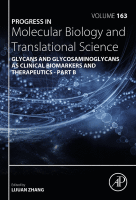
Network Pharmacology
Tremella fuciformis polysaccharide, a major bioactive component in the edible medicinal mushroom, exhibits substantial health benefits, including enhancing the immune system, combatting tumors, and delaying aging.
Yang D, Liu Y, Zhang L.
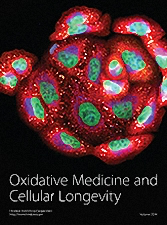
Systematic Review
The health benefits of goji berries include enhancing hemopoiesis, antiradiation, antiaging, anticancer, improvement of immunity, and antioxidation.
Zheng Feei Ma, Hongxia Zhang, Sue Siang Teh, Chee Woon Wang, Yutong Zhang, Frank Hayford, Liuyi Wang, Tong Ma, Zihan Dong, Yan Zhang, Yifan Zhu,

Systematic Review
Goji berries, rich in antioxidants, confer health benefits including protection against aging, cancer, and radiation, as well as enhancing immunity and blood production.
Zheng Feei Ma, Hongxia Zhang, Sue Siang Teh, Chee Woon Wang, Yutong Zhang, Frank Hayford, Liuyi Wang, Tong Ma, Zihan Dong, Yan Zhang, Yifan Zhu,
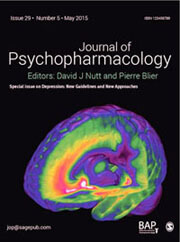
Review Article
Curcumin, a component of Indian spice turmeric, presents a potential natural treatment for depression, influencing neurotransmitters and protecting against several biological systems compromised in depression.
Lopresti AL, Hood SD, Drummond PD
Executive Summary
Write an executive summary in the form of a blog article on the topic of "Research into Chinese medicine treatment for Immunomodulation" summarising the research below and using language that can be easily understood by patients and avoiding medical jargon using a professional and caring tone of voice.
Write an executive summary in the form of a blog article on the topic of "Researched Chinese medicine treatments for Immunomodulation" summarising the research below in an objective and easy to understand way, and using language that can be easily understood by patients. Group the article into Chinese medicine treatments first, followed by nutrition and other treatments. Avoid using medical jargon and use a professional and caring tone of voice.
Write me a concise but easy to understand executive summary on the topic of "Chinese medicine treatments for Immunomodulation" based on the following research that I will give you. Your summary should be 2 paragraphs long in Australian English spelling and include references to the studies.
A Review Article published in 2023 in the journal Nutrients found that Vitamin D deficiency could accelerate depressive symptoms and suicide risks, and vitamin D supplementation may mitigate these effects. The paper examines the links between vitamin D deficiency, depression, and suicide from various studies. It hypothesizes that vitamin D could enhance serotonin synthesis and modulate proinflammatory cytokines, both factors in depression and suicide. The paper reviews this hypothesis in the context of the broader health issue of suicide, which is among the leading causes of death worldwide. This paper then discusses the potential benefits of vitamin D supplementation. Drawing upon indirect evidence suggesting that vitamin D deficiencies may be a risk factor for depression—one of the most common factors in suicide attempts—the paper postulates that vitamin D supplementation could play a role in helping to reduce the risk of depression and thus suicide. The beneficial mechanisms of vitamin D, such as enhancing serotonin synthesis and modulating proinflammatory cytokines, which are associated with depression and suicide, stand as the central contributing factors in this hypothesis.
A Review Article published in 2022 in the journal Journal of Functional Foods found that Carrot's bioactive compounds can regulate immune response, reduce oxidative stress, and prevent damaging oxidative destruction, making it a potential preventive tool for various diseases. In this literature review, mechanisms were proposed for how the antioxidant properties of carrot’s β-carotene and other bioactive compounds, such as phenolic acid, flavonoid, polyacetylene, and ascorbic acid could modulate the immune system. These proposals were centered around three main paths: anti-inflammatory response modulation, antioxidant response modulation, and overall immune response modulation (which involves both innate and adaptive responses). In the discussion of results, it was revealed that the bioactive compounds in carrots have the ability to regulate pro-inflammatory and anti-inflammatory cytokines, and are also capable of reducing oxidative stress. This was shown by the decrease in the accumulation of reactive oxygen species and an increase in antioxidant capacity, which collaboratively helps to minimize destructive oxidative destruction. Additionally, these compounds influenced immune components, specifically via the regulation of leukocytes, antigens, immunoglobulins, and histamine levels. As a result, carrots were defined as a functional food source capable of immune modulation and potential prevention and treatment for a range of diseases.
A Network Pharmacology published in 2022 in the journal Frontiers in Immunology found that Manuka honey exhibits a dual role in immune modulation, triggering a pro-inflammatory response by elevating cytokine expression and neutrophil recruitment via TLR signaling, while also influencing the phenotypic and functional maturation of macrophages. In vitro experiments using RAW 264.7 macrophages demonstrated that 1% Manuka honey significantly upregulated the expression and secretion of pro-inflammatory cytokines, including TNF-α, IL-1β, IL-6, and iNOS, as well as chemokines such as CXCL2 and CCL2. In vivo studies with C57BL/6 mice revealed a robust peritoneal response characterized by increased neutrophil recruitment and phenotypic changes in peritoneal macrophages after intraperitoneal administration of Manuka honey. Notably, this response persisted in TLR4-defective mice, suggesting independence from TLR4 and ruling out LPS contamination. However, the dependence on MyD88 protein, a crucial adaptor in TLR signaling, was evident, shedding light on the immunostimulatory properties of Manuka honey and its potential as an immunomodulatory agent in diverse disorders. The study delineates Manuka honey's immunomodulatory actions, showcasing its pro-inflammatory impact through cytokine release and neutrophil recruitment, independent of TLR4 but reliant on MyD88 signaling. Additionally, the observed phenotypic alterations in macrophages underscore the potential utility of Manuka honey as an immunomodulatory agent across various health conditions, offering insights into its complex yet promising role in immune regulation.
A Review Article published in 2021 in the journal Autonomic Neuroscience: Basic and Clinical found that Acupuncture, via nerve stimulation, can be a promising treatment strategy for controlling inflammation and improving organ function during sepsis by activating immune reflexes. The study used a neuromodulation approach, leveraging the technique of peripheral nerve stimulation through acupuncture. This was linked with known somatic-autonomous-immune reflexes with the aim to control inflammation and improve organ functions in sepsis cases. The local and systematic effects of this methodology were largely achieved through the activation of several reflexes. These included the somatic-sympathetic-splenic reflex, the somatic-sympathic-adrenal reflex, the somatic-vagal-splenic reflex, and the somatic-vagal-adrenal reflex. The activation of these particular reflexes is what sets acupuncture apart from other nerve stimulation techniques. In terms of results, the method used for immunomodulation and inflammation control showed considerable promise for sepsis treatment. The acupuncture procedure achieved regulation by activating appropriate reflexes which in turn produced a systemic effect, thereby controlling inflammation and enhancing organ function. The research findings underscore acupuncture as an effective therapy, providing significant advantages for immunomodulation in acute inflammation such as sepsis, leading to a comprehensive, evidence-based therapy recommendation.
A Review Article published in 2021 in the journal Molecules found that Bee honey and propolis could have potential beneficial effects as supporting treatments for COVID-19, enhancing immunity and inhibiting viral activity. The study's methodology involved a comprehensive review of the literature on the potential anti-COVID-19 effects of bee honey and propolis, products known for their strong antimicrobial and antioxidant abilities. The researchers conducted molecular simulations to see how various flavonoids found in these products might inhibit essential viral processes. Additionally, they compared the effectiveness of propolis extracts delivered by nanocarriers to ethanolic extracts, and they examined the effects of a combination of honey and propolis on hospitalized COVID-19 patients. The findings from the review and simulations suggested that certain flavonoids in honey and propolis may inhibit the fusion of the virus spike with host cells, interactions that cause a cytokine storm, and viral replication. Propolis ethanolic extract, rutin, and propolis liposomes displayed inhibitory action against non-structural proteins of the virus in vitro while naringin inhibited viral infection in specific cells. When delivered via nanocarriers, propolis extracts showed enhanced antiviral effects against the virus compared to ethanolic extracts. Observations of hospitalized patients suggested that those treated with green Brazilian propolis or a honey-propolis combination experienced quicker viral clearance, symptom recovery, and hospital discharge, along with lower mortality rates.
A Review Article published in 2020 in the journal Molecules found that Honey's phytochemical components and bioactive compounds have potential antiviral effects, potentially making it an effective natural product against COVID-19. The methodology of this research utilizes a comprehensive review and analysis of existing literature regarding the antiviral effects and phytochemical components of honey. Previous studies have indicated that certain bioactive compounds present in honey, such as methylglyoxal, chrysin, caffeic acid, galangin, hesperidin, levan, and ascorbic acid, may exhibit antiviral effects or stimulate the body's antiviral immune responses. Through thorough examination of past works, the researchers isolated and focused on these compounds, exploring their potential utility in the context of COVID-19, a novel coronavirus that currently lacks established preventative or treatment measures. The results of the analysis pointed towards the efficacy of honey's bioactive compounds, which were found to potentially display both direct antiviral effects and the promotion of antiviral immune responses. However, the precise mechanisms by which these compounds exert their antiviral activity, particularly against SARS-CoV-2, remain largely unclear. Despite these ambiguities, the research established honey as a fruitful field of study for potential therapeutic material against the novel coronavirus disease.
A Network Pharmacology published in 2019 in the journal Progress in Molecular Biology and Translational Science found that Tremella fuciformis polysaccharide, a major bioactive component in the edible medicinal mushroom, exhibits substantial health benefits, including enhancing the immune system, combatting tumors, and delaying aging. The study analyzed various fractions of Tremella fuciformis polysaccharide (TFPS) which is extracted from the "Yiner" mushroom under different conditions leading to variations in molecular weight. The TFPS comprises various monosaccharides including mannose, xylose, fucose, glucuronic acid, glucose, and galactose. One of the characterized structures consists of a linear mannose backbone with branched off chains of xylose, fucose and glucuronic acid. Biochemical, pharmacological, and clinical studies involving TFPS spanning 46 years (1972-2018) were drawn from the likes of PubMed, China National Knowledge Infrastructure and Wanfang database and comprehensively reviewed. Over one hundred independent studies pointed to the multiple physiological and health-promoting effects of TFPS. These include benefits such as immunomodulation, antitumor, anti-oxidation, anti-aging, hypoglycemic, and hypolipidemic effects. An example of its practical application is its usage in enteric-coated capsules, approved by the Chinese Food and Drug Administration in 2002, to treat cancer patients suffering from leukopenia induced by chemotherapy and radiotherapy. This component is also used as a supplementary drug for the treatment of chronic persistent hepatitis and chronic active hepatitis, showing the versatility and progressive impact of TFPS.
A Systematic Review published in 2019 in the journal Oxidative Medicine and Cellular Longevity found that The health benefits of goji berries include enhancing hemopoiesis, antiradiation, antiaging, anticancer, improvement of immunity, and antioxidation. Goji berries are a high antioxidant potential fruits which alleviate oxidative stress to confer many health protective benefits such as preventing free radicals from damaging DNA, lipids, and proteins. There is a better protection through synergistic and additive effects in fruits and herbal products from a complex mixture of phytochemicals than from a single phytochemical. The health benefits of goji berries include enhancing hemopoiesis, antiradiation, antiaging, anticancer, improvement of immunity, and antioxidation.
A Systematic Review published in 2019 in the journal Oxidative Medicine and Cellular Longevity found that Goji berries, rich in antioxidants, confer health benefits including protection against aging, cancer, and radiation, as well as enhancing immunity and blood production. The methodology of the study focused on a thorough review of the bioactive compounds and pharmacological properties of goji berries, particularly targeting their molecular mechanisms of action. This involved looking at the different ways these fruits are consumed, such as in soups, herbal teas, tinctures, wine, and juice, and how these methods influence the antioxidants present in the fruits. Goji berries were found to offer a range of health benefits due to their ability to alleviate oxidative stress. These benefits include enhancing hemopoiesis (blood formation), offering antiradiation and antiaging properties, inhibiting cancer, improving immunity, and providing antioxidation. Furthermore, the study emphasized that the complex mixture of phytochemicals found in fruits and herbal products like goji berries provide a cumulative protective effect, which proves more beneficial compared to extracting and using one single phytochemical.
A Review Article published in 2012 in the journal Journal of Psychopharmacology found that Curcumin, a component of Indian spice turmeric, presents a potential natural treatment for depression, influencing neurotransmitters and protecting against several biological systems compromised in depression. The research methodology involved an extensive review of the varying influences and effects of curcumin on systems implicated in depression. These included neurotransmitter systems like serotonin and dopamine which are critical to mood regulation. The study also explored the effects of curcumin on hypothalamus-pituitary-adrenal disturbances, famously associated with stress response and mood disorders. In terms of results, curcumin demonstrated promising potential as an antidepressant in animal models of depression. Additionally, it was found to help moderate damage to neurological systems and intestinal permeability, both of which are often compromised in major depressive disorders. It also exhibited properties that could help lower inflammation and protect against oxidative stress and mitochondrial damage. Together, these findings position curcumin as a promising natural treatment for depression.
Moderation Tools
Topic
Sign In
Users not signed in are limited to viewing the 5 most recent items of content.